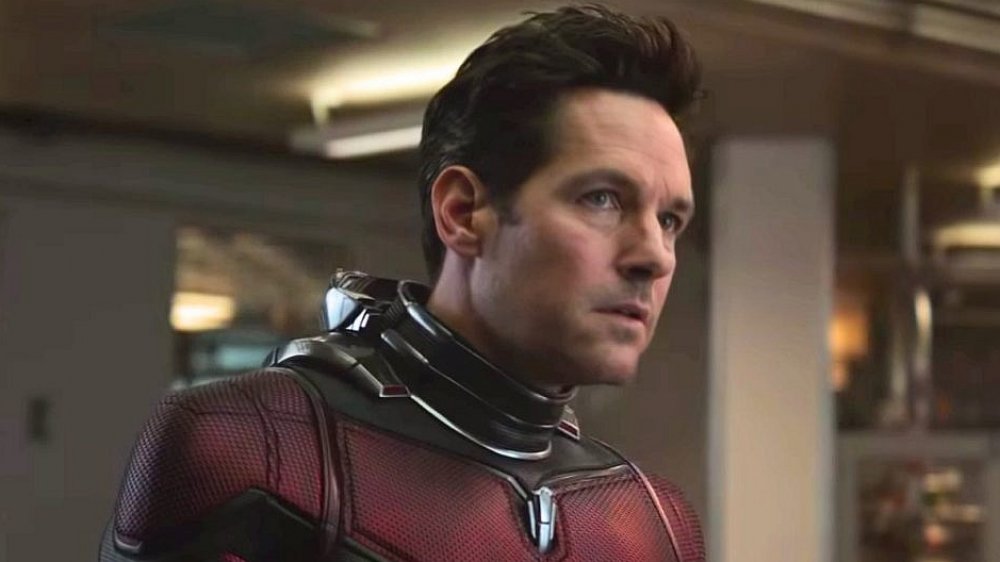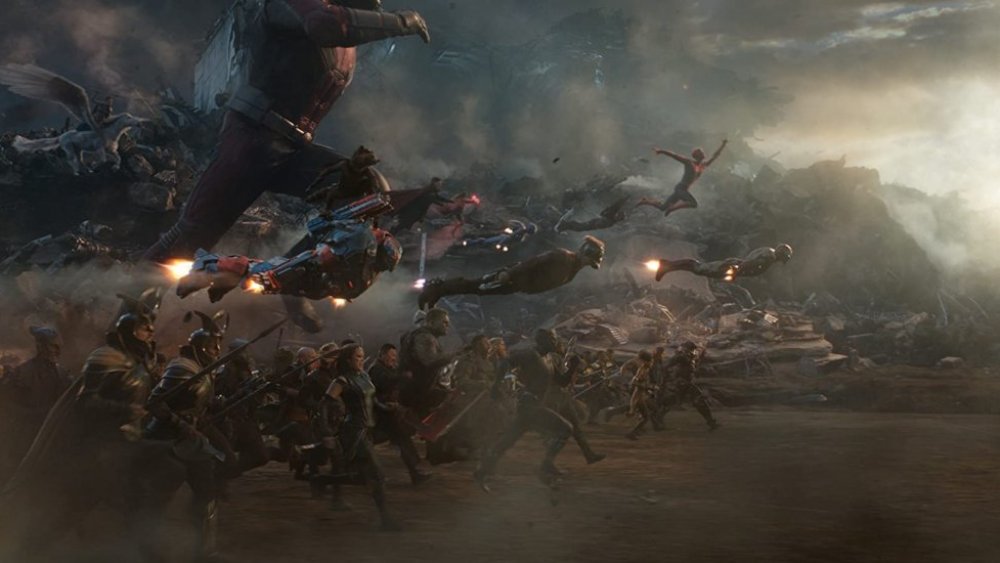The Real Reason Avengers: Endgame Jumped Forward Five Years
Avengers: Endgame was nothing short of a spectacular pop culture event. It wrapped up the arc of the massive MCU storyline that started with 2008's Iron Man and fully kicked into high gear by 2012's The Avengers, but it also skillfully set the table for the many future adventures of the surviving heroes. The movie was and remains the talk of the superhero-oriented parts of the proverbial town, so it was a delightful surprise when the Russo Brothers arranged an Instagram-and-Twitter event in honor of the movie on April 27, 2020.
Endgame's first big twist comes early, with the surviving Avengers wasting no time heading to space to enact vengeance on Thanos for "snapping" half of all life out of existence. Thor quickly finishes off the injured and now-passive villain, but this brings peace to absolutely no one — and the next thing we know, the movie has skipped a whole five years ahead, showing the sad remnants of the once-proud Earth's Mightiest Heroes holding on the best they can.
The question is, why did the writers settle on five years? Why not see the surviving superheroes deal with their grief a mere year into the plot, or perhaps dive even deeper, with a time skip of a full decade or two? Luckily, we now know the answer to this particular question. Here's the real reason Avengers: Endgame jumped forward five years.
Five years was just the right amount of time for Avengers: Endgame
During the April 27 event, Avengers: Endgame co-writer Stephen McFeely answered the burning question of the five-year time skip in not just one, but two Twitter posts. When asked if the five-year figure ever changed over the course of the writing process, McFeely replied: "No. Five seemed reasonable — means you can keep your actors looking similar." Later, he extrapolated by tweeting, "The five year jump allowed us to explore how the Avengers processed grief differently." By way of illustration, the scribe attached a link to the famous Kubler-Ross model, a.k.a the 'five stages of grief' (via Psych Central): denial, anger, bargaining, depression, and acceptance.
Perhaps not coincidentally, many of Endgame's post-time skip Avengers certainly seem to fit to the bill, when you think about it. The chunky, boozy, video gaming Thor was certainly deep in denial, while Hawkeye's sword-wielding Ronin persona was... pretty angry, wasn't he? Steve Rogers' struggle to accept the situation could be interpreted as bargaining, and the "sandwich" scene showed even the usually hard-edged Black Widow breaking down and showing signs of depression. Meanwhile, Bruce Banner managed to accept a peaceful coexistence with Hulk and proceed to live his absolute best life. Who said superhero movies were detached from the real world?

